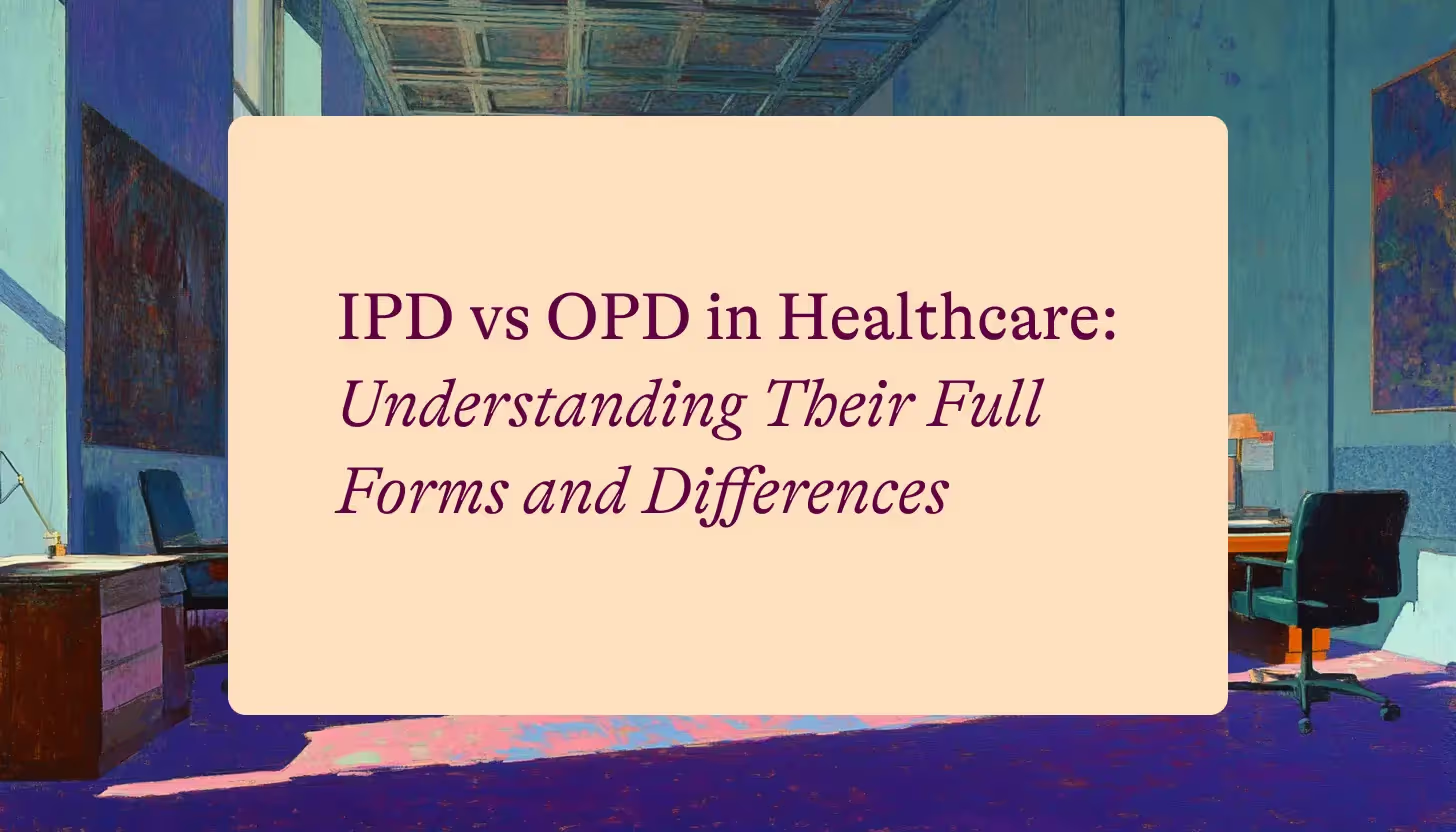What is Mediclaim Policy?
A Mediclaim policy, often misunderstood as just another health insurance product, is a unique contract between you and an insurance company. You pay premiums and the company takes care of your medical expenses. It's a valuable instrument to combat the ever-increasing medical costs in India.
Features and Benefits of a Mediclaim Policy
While the features and benefits of each Mediclaim policy vary based on the insurance provider, here are some common ones that can be found in most plans:
Financial Protection: Hospital bills can be daunting. Therefore, having a Mediclaim policy eases the burden on your pocket, ensuring that your savings remain intact.
Extensive Coverage: A Mediclaim policy doesn't just cover hospitalization costs. It goes beyond, covering pre and post-hospitalization expenses, including diagnostic tests, medicines, and consultations.
Cashless Treatment: Avail of treatment without any direct monetary transaction at network hospitals. The insurance company settles your bill directly with the hospital.
Tax Benefits: You can claim a tax deduction for the premium paid towards your Mediclaim policy under Section 80D of the Income Tax Act.
Pre and Post-Hospitalisation Expenses: Expenses leading up to and after your hospital stay, like consultations, medications, and diagnostic tests, are also covered under Mediclaim Policy.
No-Claim Bonus: If you don't make a claim during a policy year, Mediclaim policies often reward you with a no-claim bonus. This could either enhance your coverage amount or decrease your subsequent premium.
Critical illness Coverage: A significant number of Mediclaim policies include provisions for major diseases such as cancer, heart diseases, and strokes.
Diverse Policy Options: Mediclaim Policy offers a vast range of policy options, comparable to traditional health insurance plans. You can secure policies for yourself, your partner, kids, or even your parents, all at cost-effective rates. Additionally, Mediclaim provides specialized policies tailored for those with critical health conditions and policies specifically designed for senior citizens.
Types of Mediclaim Policies
Different types of Mediclaim policies cater to various needs.
What's Covered in a Mediclaim Policy?
Mediclaim policies usually offer broad coverage. Here's what's included.
What's Not Covered in a Mediclaim Policy?
Every policy has exclusions. Here are some things usually not covered by Mediclaim policies.
Factors to Consider While Buying a Mediclaim Policy
Here are some factors to bear in mind while choosing a Mediclaim policy.
Documents Required While Buying a Mediclaim Policy
While applying for a Mediclaim policy, you'd need to submit the following.
Difference Between Mediclaim Policy and Health Insurance
Mediclaim and health insurance often appear similar, but they have significant differences. While Mediclaim only covers hospitalization costs and specific treatments, health insurance offers a broader coverage including pre and post hospitalization costs, ambulance charges, compensation for lost income, etc. Plus, health insurance allows policyholders to avail of regular health check-ups.
With rising healthcare costs, having a Mediclaim policy is more of a necessity than a luxury. While it provides essential financial protection, it also ensures peace of mind during challenging times. Remember, your health is your real wealth, so make sure to protect it wisely.
How to Select the Right Mediclaim Policy?
Now that you're familiar with the concept of Mediclaim, it's time to explore how to select the right one for you. While there's no one-size-fits-all approach, starting by understanding your or your family's medical needs is vital. Here are some key factors to help guide your decision:
After grasping the nuances of Mediclaim insurance and its significance, securing a policy can be a pivotal decision for you or your family. Remember the points discussed above, and always ensure you thoroughly read the policy terms, conditions, and wordings before finalizing your choice.
Frequently Asked Questions
1. What is covered in a mediclaim policy?
A Mediclaim policy typically covers hospitalization expenses, pre- and post-hospitalization costs, surgical procedures, and treatment costs for specific diseases or accidents.
2. What is mediclaim policy and how it works?
Mediclaim is a type of health insurance that reimburses the policyholder's hospitalization and medical expenses or provides a cashless treatment facility at network hospitals. Premiums are paid annually, and in return, the insurer covers certain medical costs as per the policy terms.
3. What is the difference between mediclaim and health insurance?
While both provide coverage for medical expenses, Mediclaim is specifically for hospitalization and specific treatments, offering either reimbursement or cashless facility. Health insurance offers a broader coverage, including outpatient treatment, critical illness coverage, and preventive care, depending on the plan.
4. Who is eligible for mediclaim policy?
Generally, anyone ranging from a newborn to individuals up to 65 years old can avail of a Mediclaim policy. However, the exact eligibility criteria might vary based on the insurance provider and the specific policy.
5. How long is the waiting period for pre-existing diseases in a Mediclaim policy?
The waiting period for pre-existing diseases in a Mediclaim policy usually spans from 2 to 4 years. This duration varies by insurer and policy terms. Understanding this period is crucial, as it affects when you can start claiming for such conditions. It's designed to protect insurers, yet it also ensures policyholders are upfront about their health history.
6. Are there any age-related restrictions for renewing a Mediclaim policy?
Yes, some Mediclaim policies have age-related restrictions on renewability. Typically, policies allow renewals up to a certain age, often between 65 to 70 years. However, several insurers now offer plans with lifetime renewability. This shift aims to provide continued coverage, especially for senior citizens, recognizing the importance of healthcare access as one ages.
7. How is the premium for a Mediclaim policy calculated, and what factors influence its cost?
Premiums for a Mediclaim policy depend on several factors, including the sum insured, policyholder's age, medical history, and the type of coverage selected. Insurers also consider lifestyle choices, such as smoking, which can increase risk and, therefore, the premium. This system allows insurers to balance risk while offering competitive rates. Knowing these factors can help you choose a policy that matches your needs and budget.
.avif)










.avif)














